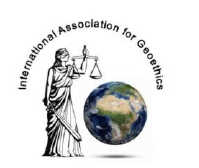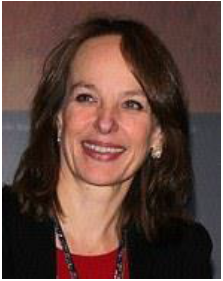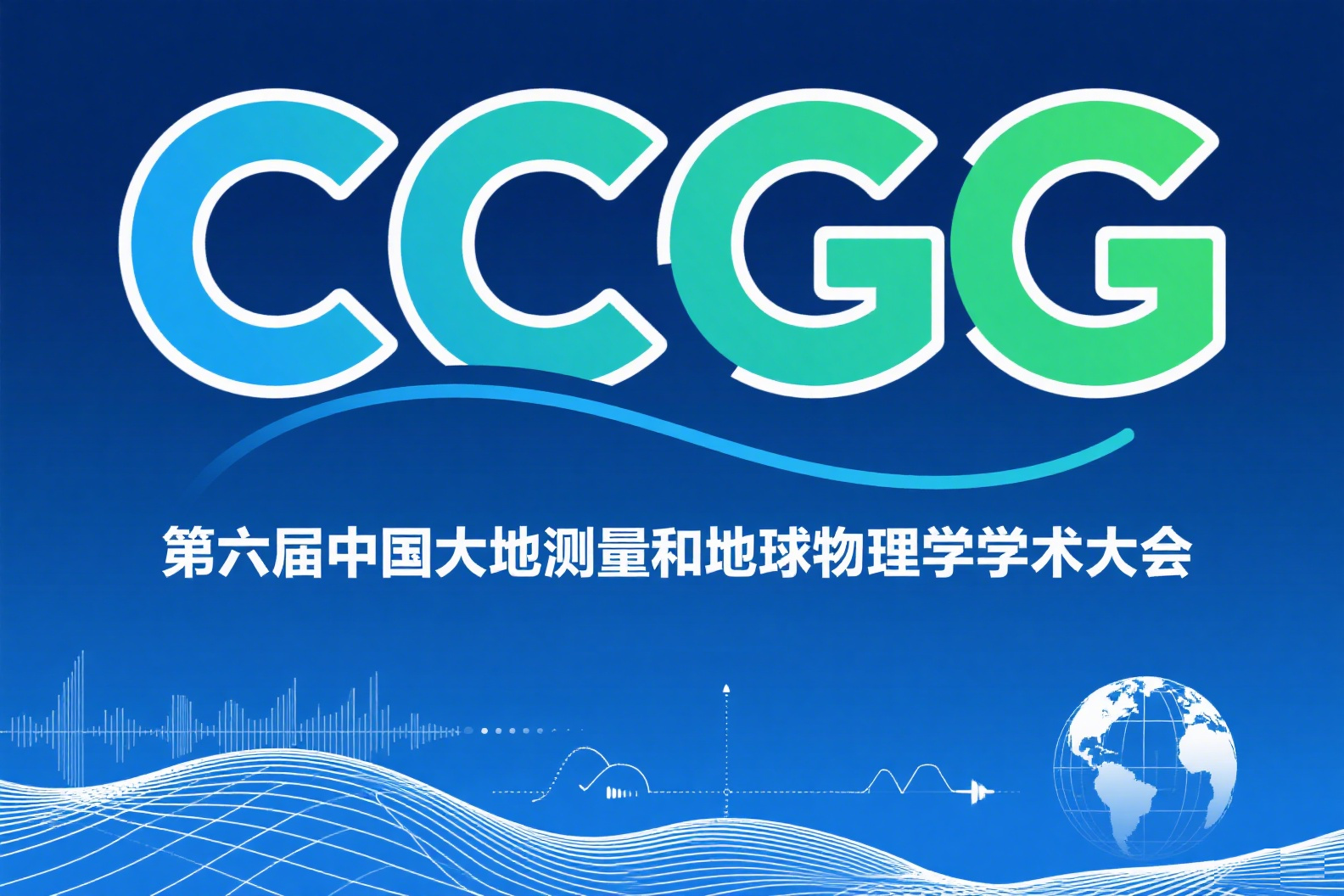The IUGG Electronic Journal Volume 16 No. 2 (1 February 2016)
INTERNATIONAL UNION OF GEODESY AND GEOPHYSICS
UNION GEODESIQUE ET GEOPHYSIQUE INTERNATIONALE
The IUGG Electronic Journal
Volume 16 No. 2 (1 February 2016)
This informal newsletter is intended to keep IUGG Member National Committees informed about the activities of the IUGG Associations, and actions of the IUGG Secretariat. Past issues are posted on the IUGG website (http://www.iugg.org/publications/ejournals/). Please forward this message to those who will benefit from the information. Your comments are welcome.
Contents
1. Union Committees renewed
2. Union Outreach Committee established
3. Grants Programme: Deadline for application is 1 April
4. Report on the XII GEO Plenary and the Ministerial Summit
5. IAGETH Statement in support of the Paris Agreement on climate change
6. News from the International Council for Science (ICSU)
7. COSPAR Scientific Assembly 2016
8. SciDataCon 2016: Advancing the Frontiers of Data in Research
9. International Climate Protection Fellowship Programme
10. Awards and Honors
11. Meeting calendar
1. Union Committees renewed
Based on the nominations received from IUGG National Members and Union Associations, the President Michael Sideris renewed the membership of three Union Committees (2016-2019).
Statutes and By-Laws Committee
Charles Fierz, CHAIR (Swizerland)
Charles Barton (Australia)
Jeff Freymueller (USA)
Ajai Manglik (India)
Kathy Whaler, ex-officio (UK)
Honours and Recognition Committee
Athena Coustenis, CHAIR (France)
Lizzette Rodriguez (Puerto Rico / USA)
Olga Solomina (Russia)
Bernard Wood (UK)
Capacity Building and Education Committee
László Szarka, CHAIR (Hungary)
Nasser Abou Ashour (Egypt)
Moira Evelina Doyle (Argentine)
Teodoro Georgiadis (Italy / Greece)
Bernard Heck (Germany)
Gerhard Navratil (Austria)
Rrapo Ormeni (Albania)
Feng Tian (China)
2. Union Outreach Committee established
The ad-hoc Outreach Committee was established by the IUGG Executive Committee in July 2015 in Prague, and its membership was approved by the Bureau in January 2016. The Committee is set up to organize and manage IUGG’s communication, promotion, public information and general outreach activities. Namely:
To promote the recognition and demonstrate the utility of Earth and space sciences in general, and IUGG in particular, to other organizations, industry, governments and the public at large, with special attention to the younger generations.
To develop liaisons with relevant national and international unions and associations, professional societies, and other international and intergovernmental bodies.
To help develop lasting relations with industry and national and regional geo/space agencies by developing joint R&D and other programs and projects.
To provide advice to the Union on options and actions by which IUGG could become more attractive to, and increase the participation of, young scientists.
Appropriate strategies will be developed for targeting students, early career scientists, scientists in developing countries, government agencies, private companies, decision makers, and international organizations. This can be achieved through:
Promoting collaborations with industry partners, as well as their participation in IUGG activities.
Promoting and supporting the activities of the IUGG early career scientists network.
Soliciting support from potential sponsors (private industry, system manufacturers, government agencies, foundations, etc.) for promotional projects and activities.
Providing advice on the development of the Union’s newsletter, web site, stands, banners, brochures, leaflets, videos and other promotional materials for exhibitions, conferences and for wider distribution.
Identifying, collecting, evaluating and disseminating information on available internet resources useful for promotion of, and education in, geodesy and geophysics.
Identifying opportunities for developing and participating in joint outreach activities with sister societies and international scientific and professional organizations.
The IUGG President Michael Sideris appointed the following people to the Outreach Committee:
Kathy Whaler, CHAIR, IUGG Vice President (UK)
Val Byfield (UK)
Julia Keller (Germany)
Franz Kuglitsch, ex-officio (Germany)
Sanjay Limaye (USA/India)
Karoly Nemeth (New Zealand)
Greig Paterson (China)
3. IUGG Grants Programme: Deadline for application is 1 April
IUGG continues its Grants Programme for 2016-2019. Key priority areas are defined for the Grants Programme in line with IUGG overall scientific strategies:
Creation of new knowledge in Earth and space sciences;
Dissemination of knowledge, data and information on geophysics and geodesy;
Geoscience for sustainable development;
Geoscience and policy interface;
Geoscience education and outreach in developing countries.
Proposals of high quality related to the priority areas will be funded for a fixed term of one or two years. The IUGG Grants Programme aims to support projects of importance to the international geophysical and geodetic community, which will explore new scientific ideas and develop future international initiatives. A typical proposal may be for a workshop or a meeting of experts from several disciplines to develop a specific scientific programme or assessment, particularly addressing an enhancement of geophysical research and Earth science education in underdeveloped and developing countries. Although the range of activities supported is broad, the project proposals should be of scientific and societal importance, and their results are expected to provide clear recommendations to politicians and other decision makers at national and local levels and to the general public in terms of the urgent actions to be undertaken. The deliverables of the projects should bring increased visibility to IUGG and the Union Associations.
Proposals can be submitted by IUGG Associations and Union Commissions only. Associations' bodies (e.g. Commissions, Task and Work Groups) seeking funding for a project should submit their proposals via relevant Union Associations or Union Commissions. Preference will be given to proposals that are multi- and trans-disciplinary and truly international, especially those involving more than two of the IUGG Associations and Union Commissions and representatives of several nations and countries. Proposals should be global or regional in scope and involve a multi-national group, especially scientists from developing countries, women, and younger researchers.
The number of proposals to be funded per year is not fixed, but depends upon relevance, quality, proposal budget requests, and the total amount of funds available for the Grants Programme. The total funding for the Programme in 2016-2017 is US$40,000. The same amount of funds is reserved for 2018-2019. A ceiling of US$20,000 is imposed on all applications. The budget should be clearly described; co-sponsorship from other sources is encouraged.
The deadline for the project proposal submission is 1 April 2016. Following the call, all proposals are reviewed in open competition by the IUGG Bureau. If necessary, specialized experts may be invited to participate in the review process. Successful applicants will be notified by 1 July 2016. Grants will be made for periods of one or two years commencing from 1 August 2016. Funds will be allocated as a function of need and quality, and projects may be cancelled if progress has been unsatisfactory. For funded projects, an annual report is to be sent to the IUGG Secretariat by 31 October 2017. A final report is to be submitted within three months of the date of the project completion.
Applicants are encouraged to submit their applications electronically. The application form can be obtained from the IUGG Secretariat on a request of Union Association or Union Commission Secretaries General. More information:
http://www.iugg.org/programmes/grants2019.php
4. Report on the XII GEO Plenary
The XII Plenary of the Group on Earth Observations (GEO) was held on 11-12 November 2015 in Mexico City, Mexico. The following topics were considered at the meeting: (i) GEO recognized Vietnam, Ecuador, Zimbabwe, Somalia, and Kenya as new Members; (ii) GEO approved the Mexico City Declaration; (iii) GEOSS implementation 2005-2015 and Report of the Sixth and Summative Evaluation of GEOSS Implementation; (iv) the lessons learned from GEO’s First Decade; (v) the GEO Strategic Plan for 2016-2025; (vi) new Programme Board appointments; (vii) revised criteria for Observers and Participating Organizations; (vii) GEO engagement with stakeholders; (viii) Work Programme for 2016; (ix) updates to Rules of Procedure; and (x) the budget for 2016. The Russian Federation will host the GEO-XIII Plenary in St. Petersburg, 9-10 November 2016. More information on the GEO Strategic Plan for 2016-2025 and the 2016 Work Programme can be found at the GEO website: https://www.earthobservations.org/geoss_wp.php
The GEO Executive Committee appointed Members of the newly established Programme Board based on the nominations received from Member Countries and Participating Organizations. Nominated by IUGG, President Michael Sideris was selected to be a Member of the Board.
5. IAGETH Statement in support of the Paris Agreement on climate change
The International Association for Geoethics (IAGETH), an organization linking geosciences and ethics, is officially affiliated to IUGG and IUGS (the International Union of Geological Sciences). IAGETH issued the following statement supporting the content and spirit of cooperation envisioned in the Paris Agreement on Climate Change:
“Scientists play (and will play) a vital role for Society, which is not only based on the generation of scientific knowledge, but also in taking into account and facing societal and ethical issues. After a great number of scientific studies, it has been globally recognized that climate change and its effects are real and serious, and that it is crucial to reach global agreements, developing and implementing concrete and effective actions to minimize the most critical impacts on people. Geoethics deals with the way of human thinking and acting in relation to the significance of the Earth as a system and as a model. Abiotic nature has its own dynamic evolution and its regularities and laws need to be known and understood in order to improve any forecasting and mitigation of important catastrophes and climate changes. For these reasons, we congratulate global leaders for taking a historic step in Paris to combat climate change, and also applaud the recognition of the need to safeguard the integrity and conditions of our atmosphere, oceans and, in general, the whole planet for our future generations. Thus, in the framework of our interdisciplinary links, the International Association for Geoethics (IAGETH) supports the content and spirit of cooperation envisioned in the Paris Agreement. It is our ethical duty to provide the scientific grounds and warnings about all societal and ethical aspects which are involved in the connections between nature with human actions and activities. We realize the Paris Agreement is just a first step, but it is the needed beginning of a consensual understanding of the main issues, paving the way for further specific actions. IAGETH urges its members and call on the geoscientific community to help the public to better understand the Paris Agreement.”

Jesús Martínez-Frías, IAGETH President
6. News from the International Council for Science (ICSU)
UN Secretary General appoints ICSU Executive Director to special advisory group on the SDGs
When the Sustainable Development Goals (SDGs) were adopted at the UN General Assembly in 2015, the agenda called for a multi-stakeholder Technology Facilitation Mechanism. This Mechanism should comprise three elements: a UN inter-agency task team on science, technology and innovation for the SDGs, a collaborative multi-stakeholder forum on science, technology and innovation for the SDGs that meets once a year and an online platform. After an extensive and open selection process, the UN Secretary General Ban Ki-Moon selected ten individuals to be invited to serve in their personal capacity on the Group to support the Technology Facilitation Mechanism.
ICSU Executive Director Heide Hackmann has been appointed by the UN Secretary General to serve on a special advisory group from civil society, the private sector and the scientific community which will support the Technology Facilitation Mechanism, a key part of the post-2015 architecture for the implementation of the SDGs. The group, working with the UN interagency task team, will prepare the meetings of the multi-stakeholder forum, support the development and operationalization of the online platform and provide briefings and other inputs to the high-level political forum on sustainable development.
Heide Hackmann said: “This group will play a key role to ensure the mainstreaming of science and technology into the implementation of the new development agenda, and I am honoured to be a part of that process. I also welcome the multi-stakeholder approach that has been the hallmark of the entire SDG process, and characterizes the balanced selection of this group. I look forward very much to working with this distinguished group of individuals in the coming two years.” Members of the group will serve for two years, and the group will meet at least once a year. The group will have two co-chairs who will represent the group for a period of one year at a time. The full list of members of the group, and its terms of reference, are available from the UN website (https://sustainabledevelopment.un.org/topics/technology/facilitationmechanism).
 Source: ICSU website
Source: ICSU website
7. COSPAR Scientific Assembly 2016
The 41st Scientific Assembly of the ICSU Committee on Space Research (COSPAR) will be held in Istanbul, Turkey from 30 July to 7 August 2016. All information concerning the scientific program, abstract submission, and registration, and hotel reservations is available on the web page: https://www.cospar-assembly.org and http://cospar2016.tubitak.gov.tr/en.
The deadline for abstract submission is 12 February.
8.SciDataCon 2016: Advancing the Frontiers of Data in Research
SciDataCon2016 will take place on 11-13 September 2016 at the Sheraton Denver Downtown Hotel, Denver, Colorado, USA. It is part of International Data Week, 11-17 September 2016 (http://www.internationaldataweek.org), convened by CODATA and the World Data System, both ICSU interdisciplinary bodies, together the Research Data Alliance. The Call for Sessions for SciDataCon 2016 is open 14 February.
SciDataCon 2016 is motivated by the conviction that the most significant contemporary research challenges – and in particular those reaching across traditional disciplines – cannot be properly addressed without paying attention to issues relating to data. These issues include policy frameworks, data quality and interoperability, long-term stewardship of data, and the research skills, technologies, and infrastructures required by increasingly data-intensive research. They also include frontier challenges for data science: for example, fundamental research questions relating to data integration, analysis of complex systems and models, epistemology and ethics in relation to Big Data, and so on. More information: http://www.scidatacon.org/2016/submit
9. International Climate Protection Fellowship Programme
The Alexander von Humboldt Foundation announced that up to 20 fellowships will be awarded to prospective leaders from non-European transition or developing countries who are active in any of the following areas: scientific, engineering-based, legal, economic, health-related or social aspects of climate change. The young climate experts will come to Germany for a year to work alongside a host of their own choosing on a research-related project.
The closing date for applications is 1 March. The fellowships will begin on 1 March 2017. Visit www.humboldt-foundation.de/ICF for detailed information on the programme and the online application package. An information sheet (in German, English, Spanish and Portuguese) can be downloaded from www.humboldt-foundation.de/web/publications.html. The fellowships are funded under the Federal Environment Ministry's International Climate Initiative. Please note that anyone who has already received sponsorship from the Humboldt Foundation is not entitled to apply for this fellowship.
Georg Scholl, Alexander von Humboldt Foundation
10. Award and Honors
Christine Amory (CNRS, France), past co-chair of the IAGA Interdivisional Commission on History, received the International Marcel Nicolet Medal for Space Weather and Space Climate 2015 for her outstanding efforts to structure the space weather community at an international level. Congratulations to Christine!
11. Meeting calendar
A calendar of meetings of interest to IUGG disciplines (especially those organized by IUGG Associations) is posted on the IUGG website (http://www.iugg.org/calendar.php). Individual Associations also list more meetings on their websites according to their disciplines.
February
- 8-12, IAG, Sydney, Australia, IGS Workshop. Web: http://kb.igs.org/hc/en-us/articles/205944657-IGS-Workshop-2016-Information
- 10-12, IAG, ISPRS, Lausanne, Switzerland, EuroCOW 2016. Web: http://www.eurocow.org
- 14-20, IACS, IUGG, Preda/Davos, Switzerland, Snow Science Winter School. Web: http://www.slf.ch/dienstleistungen/events/snowschool/index_DE
- 15-19, ICTP, IUGG, Sao Paulo, Brazil, Joint ICTP-Trieste/ICTP-SAIFR Advanced School on Regional Climate Modeling over South America. Web: http://indico.ictp.it/event/7618/
- 16-19, IAMAS, IUGG, Berlin, Germany, SPARC workshop on “Stratospheric Change and its Role for Climate prediction (SHARP-2016)”. Web: http://www.sharp2016.de
- 21-25, AGU, Ixtapa, Guerrero, Mexico, Chapman Conference on the Slow Slip Phenomena. Web: http://chapman.agu.org/slowslip/
- 21-26, AGU, New Orleans, LA, USA, 2016 Ocean Sciences Meeting. Web: http://osm.agu.org/2016/
March
- 2-4, GCOS, Amsterdam, The Netherlands, Global Climate Observation. The Road to the Future. Web: http://www.gcos-science.org/
- 9-12, IAG, Hartebeesthoek Radio Astronomy, South Africa, 2nd IVS Training School on VLBI for Geodesy and Astrometry. Web: http://www.evga.org/2nd_vlbi_school.html
- 13-19, IAG, WDS, Johannesburg, South Africa, 9th IVS General Meeting. Web: http://events.saip.org.za/conferenceDisplay.py?confId=56
- 13-20, IAVCEI, IUGG, Yaoundé, Cameroon, 9th Workshop of the IAVCEI Commission on Volcanic Lakes (CVL9). Web: http://www.satreps.u-tokai.ac.jp/activity/2015/CVL9_Cameroon_2nd_circula...
- 20-24, IAGA, IUGG, Hurghada, Egypt, IAGA-IV Symposium: “Influence of short and long term solar variability on climate”. Web: http://iaga.cu.edu.eg/
- 30 March – 1 April, IAG, Vienna, Austria, 3rd Joint International Symposium on Deformation Monitoring (JISDM). Web: http://www.jisdm2016.org/
- 30 March – 1 April, IAPSO, IUGG, Lerici, Italy, 2016 Arctic-Subarctic Ocean Fluxes (ASOF). Web: http://asof.npolar.no/
- 30 March – 7 April, IAGA, Levi, Finland, Space Climate 6. Space Climate School & Space Climate Symposium. Web: http://www.spaceclimate.fi/SC6
April
- 2-5, IASPEI, IUGG, Luxor-Aswan, Egypt, First General Assembly of the African Seismological Commission (AfSC 2016). Web: http://afsc2016.org
- 5-7, DLR, UNOOSA, Cologne, Germany, DLR Conference on Climatic Change – Challenges for Atmospheric Research. Web: http://www.ccc2016.net/home
- 6-8, WCRP, WWRP, IAMAS/ICDM, Reading, UK, Workshop on Atmospheric Blocking. Web: http://www.sparc-climate.org/meetings/Workshop_on_Atmospheric_Blocking_R...
- 12-13, ICSU, Paris, France, Scientific Unions Meeting.
- 12-15, IAG, St. Petersburg, Russia, IAG Symposium on Terrestrial Gravimetry: Static and Mobile Measurements. Web: http://www.elektropribor.spb.ru/tgsmm2016/eindex.ru
- 17-22, EGU, Vienna, Austria, European Geosciences Union General Assembly 2016. Web: http://www.egu2016.eu
- 16-22, IAMAS, IUGG, Auckland, New Zealand, International Radiation Symposium 2016. Web: http://irs2016.org
End of IUGG Electronic Journal Volume 16 Number 2 (1 February 2016)
Editors: Tom Beer, Alik Ismail-Zadeh (Editor-in-Chief), Franz Kuglitsch (Associate Editor), and Kathryn Whaler.


